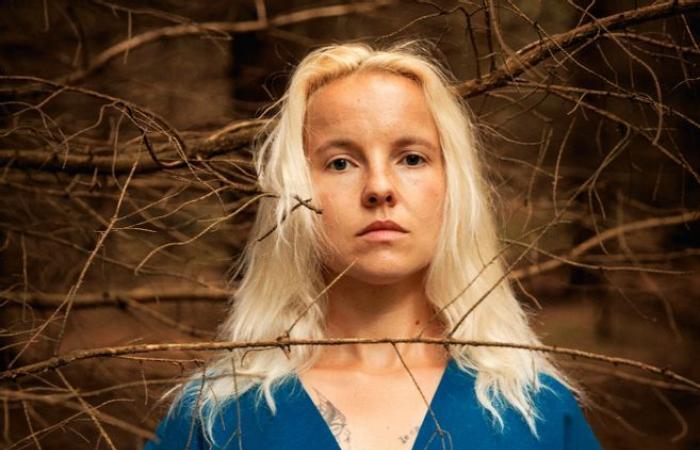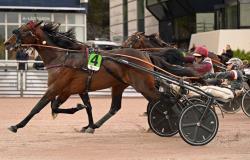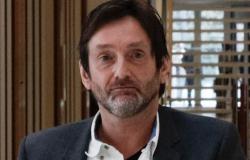
Diving into Cécile Coulon’s new novel is like a journey into the depths of human darkness. The author, who will be signing books on Thursday, July 4 at La Rose des Vents in Dreux, talks about her fascination with tormented souls locked in the unspoken. Strange and bewitching.
You write about unsaid things, silences, buried grudges, unspeakable anger… What is your secret?
I think that literature is made for that. If we write books, it is because there are things that cannot be said. Writing is another language, which comes to define, explain, and disrupt what we do not say. Whatever its genre, the purpose of a book is to talk about things that cannot be said with a simple conversation.
This story, nourished by the trials experienced by a healer, his mother, a series of characters between life and death and an entire village, offers an implacable darkness. Like a waking nightmare…
I don’t know if I wrote it as a nightmare, it’s more of a parable, a fable. I use the codes of the tale and the fable to tell what has been happening in families for generations. The fact that the story takes place in a village is a way of using it as a theater stage. A place where the characters are prisoners of the readers. These are both the codes of tragedy mixed with those of the fable. To make a very short, very dense book. Very dark, but with a point of light! This fictional story, undated, is also another bias on the subjects that are currently agitating the media, political, and literary space.
Your art of description contributes to this poisonous atmosphere. The places are as important as the characters.
I always start by writing with a place: both the geography, the landscape,… The village of Fond du puits begins first with the place where the characters will come to life.
I want people to think that this story could take place anywhere, in any country, in any era.
Are you referring to a personal experience?
The autobiographical aspect of places doesn’t interest me. I don’t want my texts to be ultra-geographically placed. I don’t want people to say that this is how it happens in Puy-de-Dôme, Picardy or Aquitaine! I want people to think that this story could take place anywhere, in any country, in any era.
Receive our leisure newsletter by email and find ideas for outings and activities in your region.
Finally, isn’t this “hidden language” specific to every family?
In this exploration of silence, I think that each of us can find things we have experienced. It is an exploration of silence. Art and creation are mirrors placed in front of each of us, whether we are readers or authors.
Is this tumultuous story a way for you to exult through writing an anger that you had deep inside yourself?
I am someone who is very pessimistic, but not angry. I think that my book is that of a nervous author. And above all, faced with the 3,000 novels written each year, lukewarm or insipid stories do not interest me. I worked a lot for this novel, because I did not want any moments of pause. For there to be a muscularity of the text, of the style. Almost a sports literature that goes into the truth of words and beings. Without frills! For a book to last, the style must be like no other. Something that remains.
There is the son, the mother… Why don’t they have an identity?
In general, I love first names and I used them in my previous novels. But here, since the text was very short, I got rid of the first names to get to the heart of the story. I wanted the characters to be defined by their actions and not by their first names. That we discover them as we progress through this night in the village of the Bottom of the Well…
Author Olivier Ciechelski resurrects Rambo
Could the current turmoil in our times inspire you to write a novel?
No, because it would be a trap.
“To tell the story of what’s happening at a given time, you have to be a genius to make it age well. You have to be at the center of things and have the perspective that I don’t have. For now, I’m sticking to fiction that isn’t dated.”
empty (empty)
I may do it in a few years, when I may have the skills. I leave that talent to those who know how to do it.
You were a columnist for the Centre France La Montagne group titles. How did you experience this exercise?
In a traditional way, knowing that I was succeeding other columnists like Marie-Hélène Lafon, Franck Bouysse… or Vialatte! I felt like I was part of a great team. In addition, I had a nice carte blanche. This allowed me to propose my readings, poetry, to talk about very concrete things,… I used this column as a personal space, but also a way of addressing people who could discover my column by reading the newspaper at the local café. It was both a return to childhood and never to propose something silly.
The first book by a former delinquent from Dreux
“Dreux will be my last signing stop before a two-month break”
How do you experience meeting readers?
It’s joy. I know it’s important for both the booksellers who do a crazy job and the readers who travel to meet you. It’s a great mark of attention. In addition, Dreux will be my last stop before a two-month break. I will be at my sixtieth meeting! I am both used to the exercise and, at the same time, I meet different people.
What do you learn from these exchanges?
Every time someone talks to me about my book, it’s always a surprise. I’ve never written what people read. And fortunately! It’s very reassuring to see that readers have room to maneuver. They read with their education, their emotion. And that’s great! It shows that people are intelligent and that I’ve left room for their imagination. It seems very important to me that this place is occupied by the reader.
Is the next novel on the way?
Of course, and it will be the sequel to The Language of Hidden Things. We never stop talking about the things we hide…
The language of hidden things. By Cécile Coulon (published by L’Iconoclaste). Signing session on Thursday, July 4 at 7:30 p.m., at La Rose des Vents in Dreux, 5, Grande Rue Maurice Viollette.
Olivier Bohin





